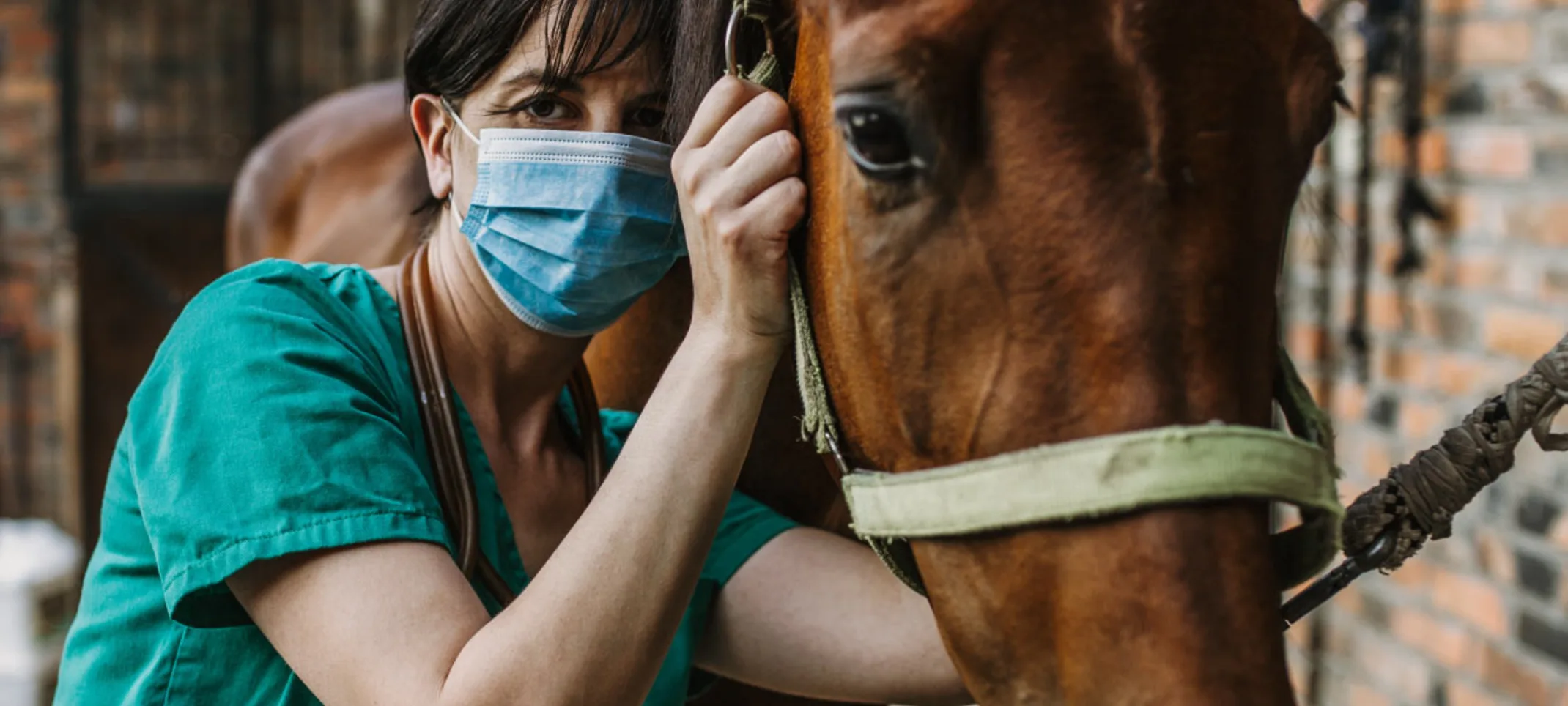Florissant Animal Hospital
Equine Surgery
Although many horses may go their whole lives without requiring surgery, some may need it. Equine surgery can be used to address any number of health issues that may arise in your horse's lifetime.

What are some common equine surgeries?
In this section, we’ll explore a short list of some of the most common equine surgeries. There are many other types of equine surgery, but these occur most frequently.
Abdominal Surgery
Horses who have severely swollen abdomens, ruptured intestine, or intestinal blockage may require abdominal surgery. This type of surgery is more routine in horses than in other animals but is still a more invasive procedure than many of the other most common ones listed here.
Fracture Repair Surgery
When a horse breaks a bone, he may need surgery to repair and set it as best as possible. The severity and location of the break will determine whether or not surgery is a possibility, and if so, how invasive it needs to be.
Laceration Repair
If a horse becomes injured with a deep laceration or other type of open wound, he may need surgery to repair the damage. This may even include skin grafting in some situations, although this is less common than more traditional methods of laceration repair. This type of surgery is often not very invasive
Eye Surgery
If a horse’s eye is injured or becomes badly infected, he may need to have eye surgery. Horses may also sometimes receive surgery for cataracts, depending on the specific situation and the individual horse. Eye surgery is considered an elective surgery in most instances and is minimally invasive.
Mass Removal
Horses who have a mass that may or may not be cancerous should have it removed. Mass removal from the outside of the horse’s body, such as masses on the skin or just under the skin, are minimally invasive. Removal of internal masses can require a more intense surgical procedure.
What conditions warrant surgery in horses?
Colic
A horse with severe colic may suffer from a badly distended abdomen and may, in extreme cases, have a ruptured intestine because of it. In this case, horses will require immediate emergency surgery to assess the damage and repair any problems that have occurred due to the colic.
Birth
When a foal is born, it is at risk for some health complications that may require immediate emergency surgery, such as strangulating hernia. This can also happen to the mare, who may also sometimes suffer a ruptured bladder during the birthing process. Mares may also need C-sections, which are another type of surgery.
Birth defects
If a horse is born with a birth defect, such as limbs that are not aligned correctly,surgery may be able to repair the problem. Your veterinarian will check over the foal in question thoroughly to determine whether or not surgery is a viable solution for the issue.
Tendon or ligament injury
Horses who suffer from injuries to their tendons or ligaments will likely need surgery in order to correct these problems. They will also need follow-up care and treatment such as chiropractic therapy or other types of physical therapy. Injuries such as these are very common in horses, so the surgeries to correct them are fairly routine.
Cancer
If a horse has cancer, or if your veterinarian suspects that a mass is cancerous, it will need to be removed. Cancer as well as benign tumors and growths on a horse’s body account for many of the surgeries performed on horses annually.
Remember that the lists above are not exhaustive ones. There may be a variety of other problems that can cause your horse to require surgery. Your vet will be your best source of information on this topic, and will likely provide you with everything you need to know when choosing whether or not to proceed with surgery to treat your horse’s condition or injury.
The more you understand about equine surgery, the more easily you will be able to make that decision if the time ever comes. Don’t be afraid to reach out and ask your veterinarian or other horse owners in your area for more information
